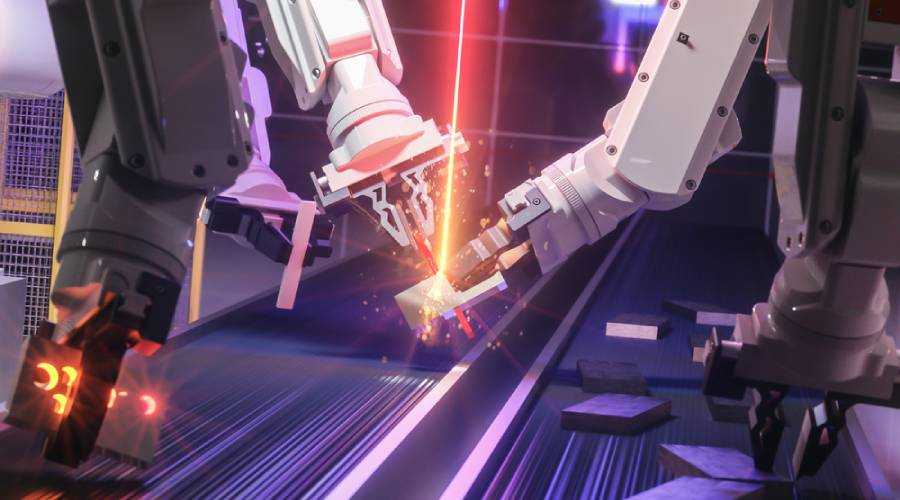For a manufacturing company, adopting an MES system represents a great opportunity to increase productivity and efficiency levels. In fact, these represent the strategic levers for differentiating from competitors, in markets rich in solid companies and emerging players
However, new technologies, digital transformation, IoT and automation impose an even more effective and targeted control of production: it is therefore necessary to take a step beyond the simple adoption of MES software and opt for system integration, a corporate vision that realizes with a connected and barrier-free virtual environment. Continue reading to find out more!
The role of the MES system in the corporate architecture
Over the years, company management software has become increasingly accessible and available to small and medium-sized enterprises as well – which represent a fundamental sector of Italian production. The added value of software that controls production is visibility into activities, which supports cost containment and efficiency improvement: the cornerstones of an excellent ROI.
For companies, it is right to focus on the quality of information systems, but we must not forget their role within an architecture and an overall framework. In fact, if on the one hand the MES system is the backbone of the production department, on the other hand to maximize its potential it must find its place within a modern, connected corporate infrastructure, free of barriers and silos.
Before delving into this last aspect and the opportunities of system integration for companies operating in the context of the Fourth Industrial Revolution, let’s focus on the MES.
These systems, for some decades now, have been perfected and have absorbed increasingly important functions, also on the basis of the evolution of technologies and contexts. They are, in fact, sophisticated tools, characterized by an increasingly high degree of automation.
The Manufacturing Execution System supports the company in the control and management of the production departments, through modular and customizable applications based on business needs and parameters. In general, the ESM deals with:
- define the production processes
- apply a check on machinery
- calculate raw materials and waste products
- prepare reports to have visibility on costs, time to market and efficiency of operational processes
Why it is necessary to opt for an overview with system integration
To respond to the requirements of the 4.0 context, manufacturing companies must transform themselves into agile, flexible and – above all – connected environments. This is an indispensable prerogative for aligning with a market demand oriented towards automation, digitization and smart processes.
Relying exclusively on the work of the MES – although this represents an excellent support to the company’s production management – is not enough to overcome the more complex barriers of the modern era.
Today, in order to stand out in an essential sector such as manufacturing, it is essential to set up a complex corporate infrastructure, rich in communicating and connected software, capable of transmitting information and data in real time, autonomously and naturally. Only in this way is it possible to have full visibility and 360-degree control over the product journey, from the launch of the bill of materials to its marketing.
The 4.0 tools that contribute, together with the MES system, to the formation of the intelligent factory are ERP and PLM: system integration starts when these tools, by connecting, generate an environment without frictions, barriers and bottlenecks.
How to be sure that the transmission of information is not interrupted? The most strategic choice, for a company that wants to start system integration, is to rely on a trained supplier with solid skills in ERP, MES and PLM systems. By opting for a single partner who supports the company in consulting, implementing and guiding the use of the software, you can be sure of guaranteeing business continuity. Seeking transversal skills and experience in a single partner is the key to centralizing the information and data that circulate within the company. Conversely, relying on different vendors based on individual specializations could prove time-consuming to streamline the business, initiate the agile transition, and overcome tool conflicts. In fact, it is very probable that in the event of problems there will not be an immediate resolution, rather a rebound of responsibilities.
For more than 35 years, Metisoft has been guiding customers in digital transformation with solutions and services that support business processes, breaking down technological challenges. Backed by a solid and long experience, Metisoft has the know-how and skills to guide companies in system integration: the extensive knowledge of a variety of software and technologies places it in a prominent position compared to other competitors.
MES, ERP and PLM: architecture of a 4.0 company
Returning to the management tools, the MES collects the data necessary for production and the PLM manages the product life cycle, thus favoring complete traceability. Integration with ERP, the software that allows resource planning, takes production management to a higher level, allowing you to definitively abandon manual and traditional logics. The synchronization between the 3 systems allows you to have authoritative and reliable information, because it is updated in real time. This makes it possible to reduce waste and costs – above all hidden – which affect the company’s efficiency and competitiveness.
A connected environment guarantees the alignment of production with effective demand, thus avoiding all conditions that generate overproduction or underestimation of production compared to demand.
Finally, efficient and multi-level controlled productivity protects the company from recalls and other critical situations that can prove harmful to the brand’s reputation and competitive ability.
















Leave a Reply
View Comments